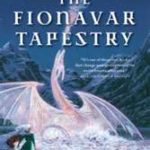Speculative Death: Spin The Wheel
Okay, it’s been a couple of weeks. Where were we?
To summarize, the spec-fic consensus is you can’t cheat death in any meaningful sense because:
- Death is relentness and will catch up with you eventually, or…
- Immortality (absent of God) is such a burden of empty meaninglessness, you’ll waste away or do yourself in to escape it.
Hmm. What to do?
“Think, think, think,” quoth Pooh.
Voice: “Buddy, what you need is a reboot!”
Pooh looks up and discovers a pair of strange creatures standing a few feet away and smiling at him.
Pooh: “Oh, bother. You’ve disturbed me in the middle of a think. I shall have to begin all over again. Who, may I ask, are you?”
Timon: “My name’s Timon, and my buddy here with the digestive issues is Pumbaa. We live on the African savannah a couple hundred acres south of the Hundred Acre Wood. Say hello, Pumbaa.”
Pumbaa: “Hello, Pumbaa!”
Timon: “Sheesh. Never mind.”
Pooh: “Are you, perchance, a heffalump and a woozle?”
Timon: “No, I’m a meerkat, and Pumbaa is a pig.”
Pumbaa: “I’m really a wild boar, but you can call me Mister Pig, if that’s easier.”
Pooh: “Oh, good. I’m afraid of heffalumps and woozles, but you only make me feel confused. What’s this reboot thing you were talking about? I have no use for boots, being a bear.”
Timon: “You’re worried about death and immortality, am I right?”
Pooh: “Yes. It’s a depressing think for a bear of very little brain such as myself. It makes my head hurt and my tummy rumble. You wouldn’t happen to have brought along a jar of honey, would you?”
Pumbaa: “No, but we’ve got plenty of juicy bugs! Care for a centipede?”
Pooh: “No, thank you.”
Pumbaa: “Are you sure? C’mon, try one! It’s full of Vitamin C!”
Timon: “Getting back on topic, let’s accept that we’re finite beings with an immortal soul and just roll with it. Everybody’s part of the Circle of Life. We’re born, we live for a while, we die, and then the whole thing starts all over again.”
Pumbaa: “That’s right! Hakuna Matata!”
Pooh: “Come again?”
Timon: “It means ‘no worries for the rest of your days.’ It’s our problem-free philosophy.”
Pooh: “You don’t say. It sounds like something Owl would come up with. Exactly how long does this Circling of Life go on?”
Timon: “Forever, or until you truly understand Hakuna Matata.”
Pooh: “And then what happens?”
Timon: “You become one with the Circle of Life itself!”
Pumbaa: “Ah, to be one with the Circle of Life! It’s paradise, my friend.”
Pooh: “Bother. It sounds tiring. If you’ll excuse me, I think I shall go in pursuit of a nap, perhaps with a snackerel of honey beforehand. It may be that the answer to my question will come to me in a dream.”
Timon: “Well, if you change your mind, come on down to Pride Rock and look us up. Unless we’re dead.”
Pumbaa: “Yeah, then we could be just about anything, right, Timon?”
Timon: “Right. I like to think I’ll come back as a fierce lion. Groowwlllrrrr!”
Pumbaa: “But if you did that, you might eat me by mistake.”
Timon: “Pumbaa, even the hyenas don’t think you’re edible.”
Pumbaa: “Oh. That’s a relief. Have a centipede. Hakuna Matata!”
Timon: “Yum. Hakuna Matata right back at’cha, buddy!”
So, reincarnation. Hmm. You won’t find this approach in Christian spec-fic because Christianity is pretty clear about what happens after death. There’s a final judgment, then we proceed to our eternal reward, or penalty, as appropriate. No going back to the womb to try getting it better next time. Reincarnation also downplays the connection between soul and body that is much stronger in Christianity. For Christians, the body is an integral part of our identity as created beings. Christians look forward to resurrection in perfected bodies, but bodies that are uniquely identifiable as our very own. In religious systems that espouse reincarnation, it’s all about the soul. The body is just a container.
 Reincarnation shows up in supernatural fictionand fantasy a lot, usually with some strangeness surrounding a character who turns out to be the reincarnation of someone who died tragically and has returned to set things right, or is cursed to repeat the same errors over and over again. Sometimes it’s star-crossed lovers doomed to pursue each other throughout eternity but never achieve happiness with each other. Guy Gavriel Kay’s Fionavar Tapestry tells the story of five college chums drawn into the magical world of Fionavar, who discover that some of them are reincarnations of mythic figures from legends that span both worlds.
Reincarnation shows up in supernatural fictionand fantasy a lot, usually with some strangeness surrounding a character who turns out to be the reincarnation of someone who died tragically and has returned to set things right, or is cursed to repeat the same errors over and over again. Sometimes it’s star-crossed lovers doomed to pursue each other throughout eternity but never achieve happiness with each other. Guy Gavriel Kay’s Fionavar Tapestry tells the story of five college chums drawn into the magical world of Fionavar, who discover that some of them are reincarnations of mythic figures from legends that span both worlds.
![]() Asian and Asian-themed fantasy, as you might expect, frequently employs reincarnation as a plot device. For example, the popular animated series, Avatar: The Last Airbender, features the adventures of Aang, a young man who is the latest incarnation of an eternal spirit which brings its world’s forces of nature into balance and influences human society toward order and harmony. Aang can draw on the powers and wisdom of his predecessors, but discovers that’s not as simple as it sounds.
Asian and Asian-themed fantasy, as you might expect, frequently employs reincarnation as a plot device. For example, the popular animated series, Avatar: The Last Airbender, features the adventures of Aang, a young man who is the latest incarnation of an eternal spirit which brings its world’s forces of nature into balance and influences human society toward order and harmony. Aang can draw on the powers and wisdom of his predecessors, but discovers that’s not as simple as it sounds.
 In science fiction, there’s Roger Zelazny’s Lord of Light, in which the command crew of an interstellar colony ship achieves immortality by transferring their essences into a succession of new bodies in a sort of technological reincarnation. They set themselves up after the fashion of the Hindu pantheon, each one taking on the role of a god or goddess. One member of the crew withdraws from their eternal divine bickering and their tyrannical rule over the descendants of the ordinary human colonists, who have long since forgotten their true origin. He founds a new religion, modeled after Buddhism, that stands in opposition to the Hindu status quo. Of course, not everyone is pleased about this.
In science fiction, there’s Roger Zelazny’s Lord of Light, in which the command crew of an interstellar colony ship achieves immortality by transferring their essences into a succession of new bodies in a sort of technological reincarnation. They set themselves up after the fashion of the Hindu pantheon, each one taking on the role of a god or goddess. One member of the crew withdraws from their eternal divine bickering and their tyrannical rule over the descendants of the ordinary human colonists, who have long since forgotten their true origin. He founds a new religion, modeled after Buddhism, that stands in opposition to the Hindu status quo. Of course, not everyone is pleased about this.
 Phillip Jose Farmer’s To Your Scattered Bodies Go, and the succeeding volumes in his Riverworld series of novels opens with both famous and ordinary people from a variety of historical eras across human history awakening on the shore of an immense river, with most of their memories intact, save for any knowledge of where they are or how they got there. Is this heaven, hell, or something else? The people begin doing the sorts of things people do—banding into communities, seeking power, fighting over limited resources, enslaving each other, developing technologies, and trying to figure out what’s happened to them and who’s responsible. They discover they can still die in this new world, but when they’re killed, they reawaken on the shore of the river where they began. The protagonist bands together with a motley crew led by Mark Twain, who, naturally, is building a riverboat. Together, they set out on an expedition to discover the river’s source and, perhaps, the answers to the mystery of their reincarnation.
Phillip Jose Farmer’s To Your Scattered Bodies Go, and the succeeding volumes in his Riverworld series of novels opens with both famous and ordinary people from a variety of historical eras across human history awakening on the shore of an immense river, with most of their memories intact, save for any knowledge of where they are or how they got there. Is this heaven, hell, or something else? The people begin doing the sorts of things people do—banding into communities, seeking power, fighting over limited resources, enslaving each other, developing technologies, and trying to figure out what’s happened to them and who’s responsible. They discover they can still die in this new world, but when they’re killed, they reawaken on the shore of the river where they began. The protagonist bands together with a motley crew led by Mark Twain, who, naturally, is building a riverboat. Together, they set out on an expedition to discover the river’s source and, perhaps, the answers to the mystery of their reincarnation.
While reincarnation isn’t a Christian concept, it’s an idea that has certainly spawned a lot of creative, entertaining, and thought-provoking fiction. Harking back to Becky’s post yesterday, do these stories have any redeeming value, founded as they are on a view of the afterlife that most Christians would affirm is false?
I think so. None of these stories are tracts written for the purpose of convincing readers or viewers that reincarnation is true. They do pose a lot of questions about our human nature and spiritual life: How important is the body to our personhood? If we had the ability to “reboot” ourselves, would we repeat the same mistakes and end up at the same destination anyhow? What happens when human beings begin thinking of themselves as gods? For Christians, how does the influence of the Holy Spirit dwelling within us change our behavior? What is the meaning of the Incarnation? The fiction doesn’t provide definitive answers to these questions, but it can stir us to reflection on the truth.
Think, think, think.











































Haha, the contrast between Pooh and Timon and Pumbaa is depressing.
In every science fiction book I’ve ever read, Man always becomes some form of God at the end. Always. Every time. There are many roads but only one goal. Deathless immortality, omniscience, all that jazz. They achieve it all different ways, whether it’s merging into the hive mind of the internet, or swapping bodies for something indestructible (like a robot).
Reincarnation is interesting, too. I Am Ocilla by Diane Graham deals with it in a really interesting way.
You can’t talk about reincarnation in speculative fiction without mentioning The Wheel of Time by Robert Jordan. Reincarnation is an important component of that series’ mythos, but it’s only a component.
To me, the main emphasis of WoT is the concept of eternity. The mythopoeia probably draws more from Zoroastrianism than Hinduism, casting a more-or-less eternal conflict between the Creator and the Dark One. Not a Christian idea, certainly, but the notion of standing in the place of ancient heroes in the long struggle against evil is gripping and inspiring, and the reincarnation motifs and symbols help to produce wonder at the thought.
Robert Jordan merged Judeo-Christian ideas with ideas from Eastern spirituality. It’s not necessarily true that the Eastern influences are more prominent than the Judeo-Christian ones. A good example of the merger between the two influences is the strongest oath in Jordan’s world. Jordan’s characters swear — very seriously — by their “hope of salvation and rebirth”. Salvation and rebirth. “Salvation and new birth” would have been completely Christian in the most born-again way. Just “rebirth” would be mainly Hindu, since rebirth without salvation is useless.
I’m not sure what Jordan’s intent in using reincarnation was. Being an Episcopalian, he probably didn’t actually believe in it.
I suppose reincarnation can serve to illustrate the need and deep inner belief that we all have in the idea of starting over with a new life. I think the need for rebirth is buried deep in the human heart, and that need must have brought about the reincarnation myths. Therefore, I think reincarnation can be useful in fantasy as a representation both of redemption and eternity.
Bainespal, thanks for mentioning Robert Jordan, whose stories I have not yet read, but have heard good things about. So many books, so little time. I agree reincarnation as a plot device can provide a useful metaphor for salvation/new birth in a speculative story, if it’s handled carefully.
I suppose the most bothersome thing for me about reincarnation in fiction is that it tends to compartmentalize soul and body in the same way you might a computer and the box that contains it. You can swap the insides into a different box (short tower, tall tower, low-profile desktop, etc), and it remains the same computer. Likewise, reincarnation into another body doesn’t matter. The only meaningful “you” is the soul inside the body. Yesterday, I was a lion, or a German peasant, or Queen Victoria. Today, I’m a balding guy from the American Midwest. It’s all the same me, in different boxes.
In Christianity, the body matters. A physical resurrection is pointless if the body isn’t an integral part of our identity. My soul in a different body isn’t me anymore, it’s something else. It would be like putting a Porsche engine into a pickup truck–it doesn’t make the truck a sports car, nor does the engine retain its identity as a Porsche without its original body and other component parts.
When I try to explain Doctor Who to people, some of them immediately associate it with reincarnation. If anything, it’s closer to a physicalization (yes, I invented that word) of regeneration, because he remains (roughly) the same age and body as he previously was.
The Doctor’s more like a phoenix, though. He gets reborn from the ashes and he’s still the same person. A reincarnated Doctor might come back as a girl, or a cow, or a beetle, and might not necessarily remember that he’s the Doctor at all.
There’s a little book called Conrad’s Fate that really plays with this idea, finally coming to the conclusion that the main character really hasn’t been reincarnated. But then the Lords of Karma turn out to be real. So I don’t know.
Don’t even get me started on a female Doctor. It would be as wrong to fans as Jack’s existance is to the TARDIS.
Now that I’ve seen A: TLA, I’m not sure that’s a straightforward example either. The Avatar is reborn, and can access their past selves, but Aang is a boy, not Keoshi-Roku-whover. The role of Avatar is more like an office, and its powers are only accessible at times of great need. It’s more like being president or pope, except you can talk with those who had the role before you even though they’re dead.